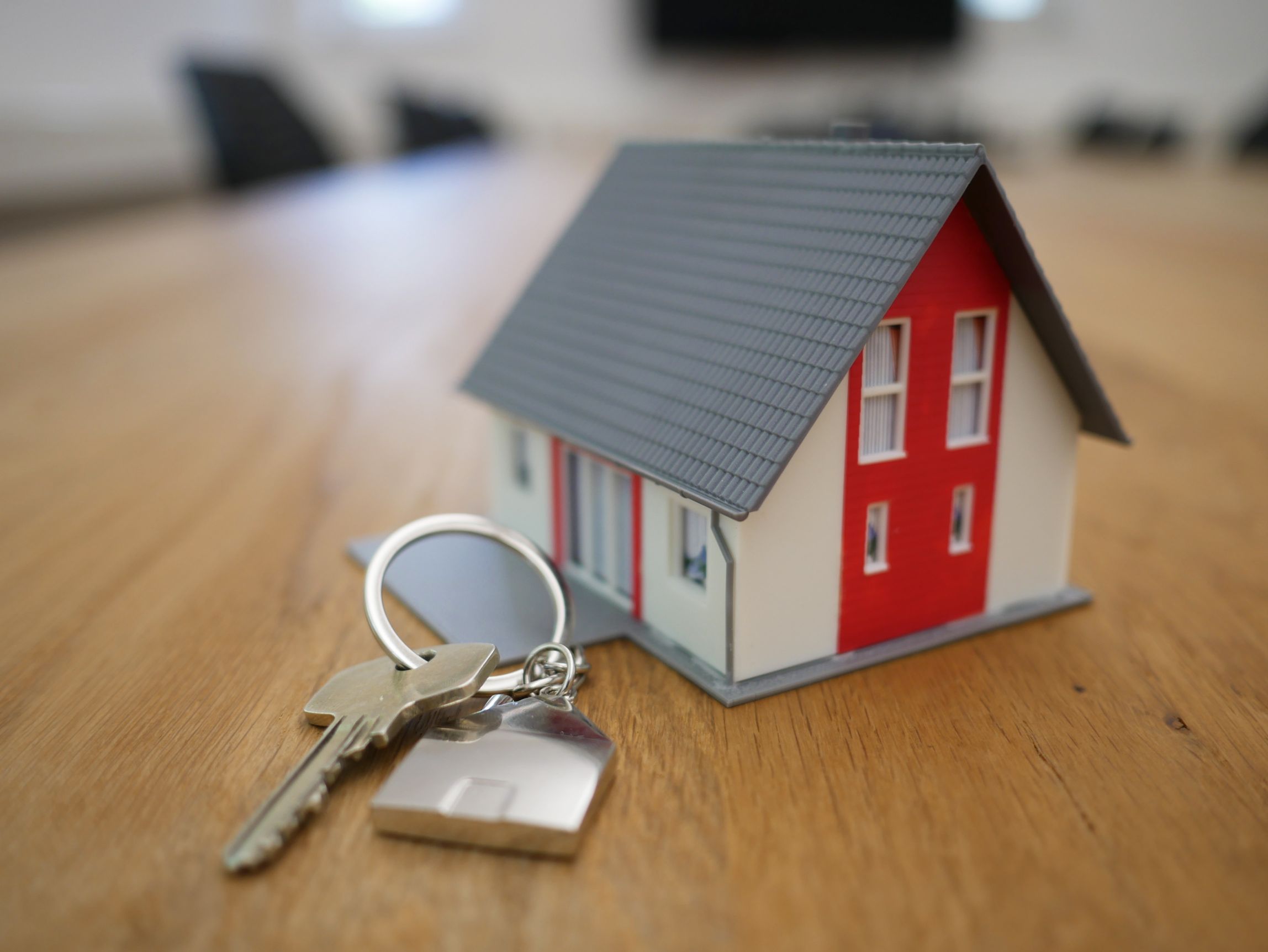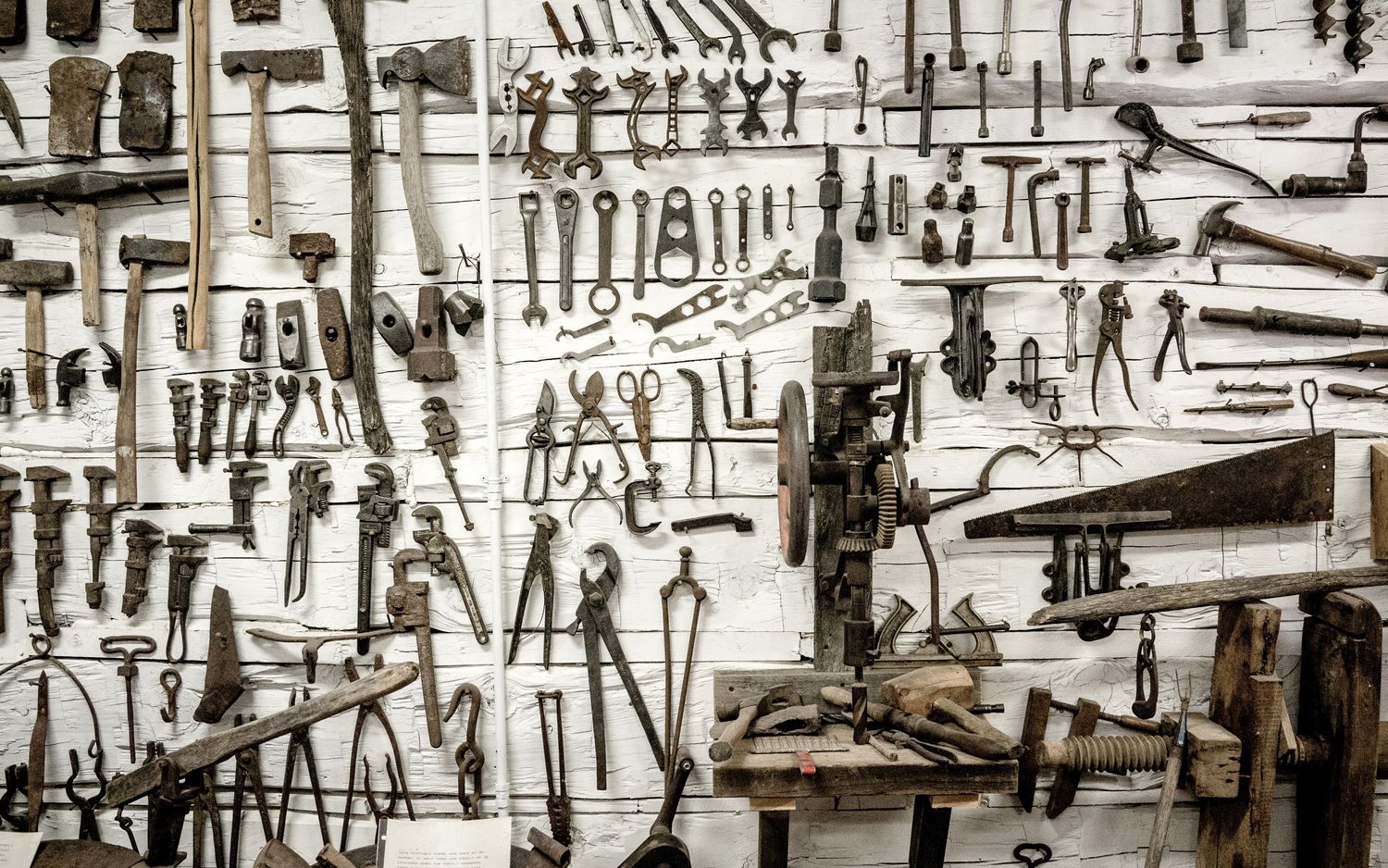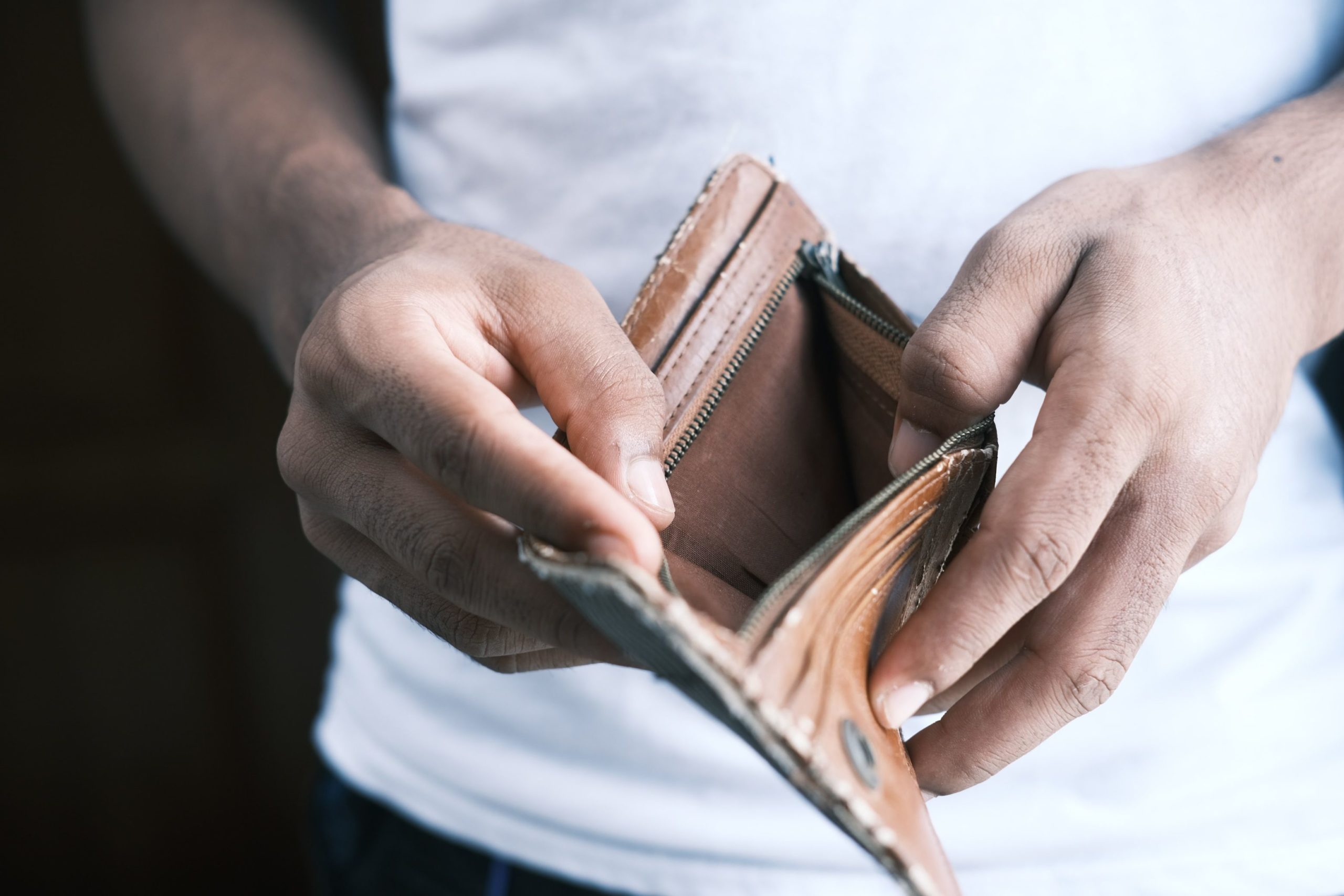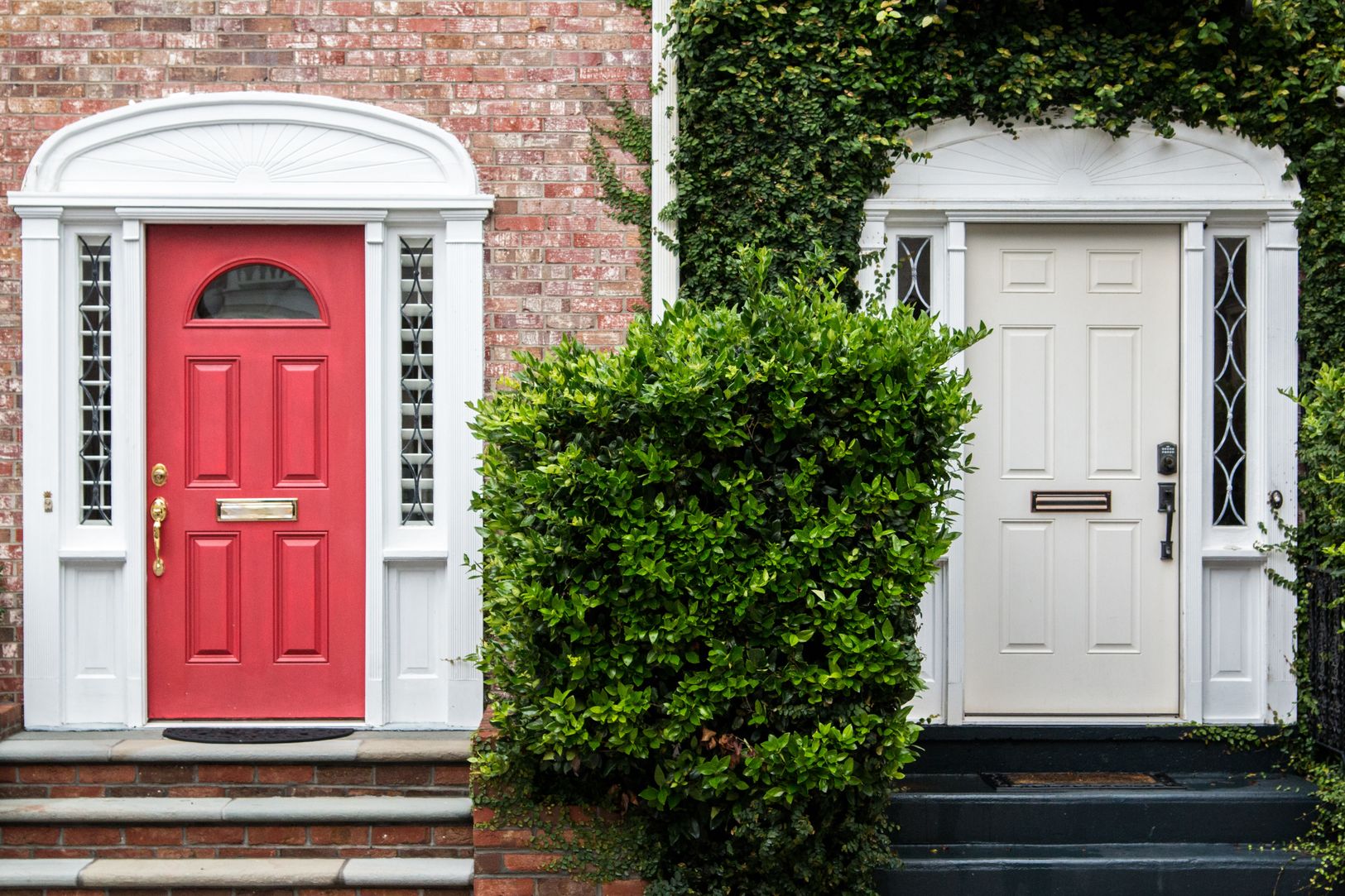Should I Buy a House Now? Why it is Almost Always Better to Rent
You graduate college, get a job, start to save a little money, and eventually buy a home, right? Wrong! This is the single biggest mistake I see young people make with their finances. If you are asking yourself should I buy a home now, I highly suggest you give this article a read first. The answer is almost always no.
SHARE

Disclaimer: Sharon Winsmith is not a financial advisor and is not engaged in the business of providing financial investment advice. The information contained on this page includes details regarding Sharon Winsmith’s personal investments. Nothing contained on this page or elsewhere on this website constitutes investment advice. We encourage you to do your own independent research and consult with your personal advisors before making any investment decisions.
Not only is buying a home usually a bad idea, it can be a disastrous step in your journey to building wealth. Read more to see why it might be better to keep renting.
Your Home is Not an Asset
Many people mistakenly believe their biggest asset is their home. This could not be further from the truth.
Your home is not an asset! You will hear me beat this phrase to death because it is so important to understand. I probably utter these six words at least once a day. My friends and family are probably sick to death of hearing it.
Wealthy people build wealth by accumulating assets. If you are going to build wealth and start educating yourself on finances, you must understand that a home is not an asset. Not only is it not an asset, it is a liability. You will never achieve financial freedom unless you understand this concept.
The American Dream is Wrong
Conventional wisdom has taught us for years that a critical step to becoming a real adult is buying your first home. The vast majority of Americans will first use their savings to buy a home instead of spending that money more wisely by acquiring assets.
Americans in the middle class generally follow the same ill advised pattern →
- Put aside a percentage of your salary each month into a savings account (I cringe at the thought of someone having a savings account)
- Let that money build up over time in your savings account (at a snail’s pace because it is after all, a savings account)
- When you have enough for a down payment, call a realtor and buy your first starter home (not an asset)
- Pay off the mortgage on the home as quickly as possible (also a bad idea)
How many of you have parents or grandparents who did something similar to the above? I know mine did. As you can see from my witty commentary, each step of this plan is seriously flawed.
7 Reasons You Should Not Buy a House
1. Your Home is Not a Good Investment
Savvy real estate investors don’t buy real estate properties hoping the property will appreciate in value. Real estate investors invest in real estate because of the cash flow it produces. If the property does eventually appreciate, that is just icing on the cake.
A home you buy to live in does not produce cash flow. It actually does the opposite, as we show below, because of all the extra expenses that come with home ownership. The only time you ever get any cash from your home is when you sell it and that is likely to be many years down the line.
Even if your home does appreciate in value, it is rare that it keeps up with the returns that other investments provide. Yes, there may be situations where someone got lucky and their home exploded in value overnight. However, this rarely happens in real life and certainly isn’t something a well advised investor would bank on.
I can’t even begin to count the number of times people have bragged to me that their home doubled in value while they lived in it. My next question is always – well how long did you live in the home? The answer is usually somewhere between 20-30 years. I hate to be the bearer of bad news, but even though your home did double in value, that is a terrible return!
On average, according to the Case-Shiller Home Price Indices, historical returns for single family homes in this country have not come close to exceeding the returns of the S&P 500 or other good investments. In reality, house prices have barely kept up with inflation. What this means is that if your goal is to buy a home and profit from the appreciation in value, that is likely to be a really bad investment.
2. Expenses, Expenses, and More Expenses
We all know there are expenses associated with owning a home. However, have you ever sat down and added up all of these expenses? They are endless and rest assured there will always be some you forgot to include or didn’t know existed.
Here are just a few of the most common expenses you can expect as a homeowner:
- Property taxes
- Repairs and maintenance
- Utilities
- Water
- Renovation costs
- Mortgage principal and interest
- Title and mortgage insurance
- Cleaning fees
- Decorating
- Lawn care and gardening
- Garbage removal
- HOA fees
- Telephone
- Pest control (watch out for termites!)
- Insurance (homeowners, building, fire, flood, etc.)
- Emergency funds for any potential disasters
- Appraisal fees and home inspection before buying
- Real estate attorney fees
- Closing costs
- Transfer taxes when you buy or sell the home
- Real estate agent commissions

3. You Won’t Get Tax Deductions for Anything
I generally don’t like expenses. However, I HATE expenses that aren’t tax deductible. Not only do the expenses associated with owning a home really start to add up, they aren’t deductible on your tax return. In my mind, this makes them intolerable.
Alternatively, if instead of living in the home you decide to flip it to be a rental property, all of those above-mentioned expenses will generally become tax deductible in some form.
You can claim a deduction for your property taxes on your tax return. However, you are limited to a total deduction of $10,000 for all state and local taxes, including property taxes. Property taxes are also itemized deductions. Many people claim the standard deduction instead of itemizing deductions. So from a practical standpoint, the property taxes are unlikely to be deducted on your return.
There are some situations when you may be able to tax deduct some of your expenses by claiming what is called the Home Office Deduction. If you are a business owner and have a home office, check with your tax person to see if this deduction might be available to you.
4. Renters Aren’t Responsible for Anything
At the time of originally writing this article I was in the process of moving to a new apartment. I was moving from one rented apartment to another. It was in the middle of the COVID-19 pandemic and to say the move was a complete disaster would be an understatement.
There were supply shortages and pretty much nothing in the new apartment worked. I would have lost weeks of valuable working time if I had to schedule all of the repairs and renovations myself. Instead, because I am not the owner of the building, my super was responsible for everything. I had to make one call to the maintenance staff instead of 50 calls to various plumbers, electricians, installers, etc.
Time is your most valuable asset. I’m perfectly happy to never have to plunge a toilet or mow a lawn again in my life because that means I have more time to spend on the things I want rather than household chores. As a renter, the time you personally have to spend to maintain your living space will be significantly less.
5. A Home is a Difficult Asset to Protect
If I get sued, someone can’t take my home if I don’t have one. Many of you may be surprised to know that all of us are one bad car accident away from losing everything we own unless we have a bullet-proof asset protection strategy in place.
It can be difficult to put your home in an LLC or otherwise use standard asset protection strategies. Insurance is never going to be sufficient. Therefore, you should always be aware of the potential risk that you could lose your home should you ever get sued in the future.
Most states have what is called a homestead exemption. The homestead exemption shields a portion of your home from potential creditors in some cases. While this may provide some protection, there can still be situations where you can lose your home in a lawsuit. Unless the individual lives in a state that provides an unlimited homestead exemption, like Florida or Texas, your home could still be at risk.
6. It Creates Opportunity Cost for Money that Could Be Invested in Assets
We’ve already established that your home is not an asset. This means that every dollar you have tied up as equity in your home, is one less dollar you can invest in an asset.
Good investors understand the opportunity cost of money. If I have $500k that I used as a down payment on a house, that is $500k less that I can invest in an S&P 500 index fund, or some other asset making similar or higher returns. Since its inception in 1957, the S&P 500 has generally had an annual return of 10.5% on average. That’s $52,500 I could have made in one year.
If I live in that house for 30 years, that same $500k invested in the S&P 500 would be worth almost $10M. That’s the beauty of compounding. But just as compounding works for you when you invest in assets, it works against you when you choose to not invest in assets.
This example illustrates how one bad decision, such as buying a house when you don’t need to, can cause catastrophic financial disaster. If you don’t believe me, check the numbers yourself with this compound interest calculator.

7. It Could Kick You Out of Accredited Investor Status
The single biggest reason you should not buy a house is that it can disqualify you from being an accredited investor. When asking yourself should I buy a house now, this is the biggest, and least talked about, reason why the answer is likely no.
If you don’t know what an accredited investor is, I suggest you read this article to see why being an accredited investor is the holy grail of investing.
In short, the U.S. government agrees with me that your home is not an asset. This is clear by the way they define who qualifies as an “accredited investor.” When testing if you meet the net worth requirements, you are not allowed to count the value of your personal residence.
Let’s look at a simple example to see why this is so bad. Let’s say Mary and Bob are a married couple with a combined income of $275,000 and a brokerage account worth $1.2M. Mary and Bob are accredited investors as of today.
However, if Bob does something stupid like goes out and puts $800k down on a house he likes, that would disqualify Mary and Bob from being accredited investors. That is because their combined net worth decreased from $1.2M to $400k (because Bob just couldn’t help himself from buying a fancy new pad).
The absolute last thing you want to do is take yourself from a situation where you are an accredited investor (where you have access to investing in the best type of assets) to one where you are not an accredited investor (when you are limited in the types of assets you can invest in).
Even if you don’t qualify as an accredited investor today, you certainly don’t want to do anything that is going to slow down the time it takes you to qualify. Every dollar you put towards buying a home is one dollar less that will count for purposes of testing if you are an accredited investor.
When You Could Consider Buying a House (If You Absolutely Have to)
I like to think of myself as a practical person so I know there may come a time when you just have to buy a house. If you just can’t resist the urge, a good rule of thumb is to never have more than 5%-10% of your net worth tied up as equity in a personal residence.
At a minimum, I recommend always following these guidelines:
- Never buy a home before you are an accredited investor. That means if you don’t currently make more than $200k a year ($300k combined income if you are married) or have a net worth of more than $1M (not counting your home), DO NOT BUY A HOME. If you do, it could be the worst financial decision you ever make.
- Never buy a home if it is going to disqualify you from being an accredited investor. Similar to the point above, if the down payment you make on the home will decrease your net worth such that you will no longer qualify as an accredited investor, DO NOT BUY A HOME.
What If I Already Own My Home?
Let’s say you find yourself in a situation where you did buy a home and now realize you committed the ultimate cardinal sin. Don’t fret! This isn’t the end of the world and there might be some good solutions that will allow you to turn this misstep into a good thing.
Here are a few solutions you could consider:
1. Move out and convert the home to a rental property
Don’t just automatically call your realtor and list the home for sale. If you can move out and convert the home into a rental property that produces positive cash flow, this might be a good idea. Real estate properties that produce positive cash flow can be a great investment!
2. House hacking
House hacking is where you divide up a property and rent a portion of the house to a tenant. Ideally, the rental income from your tenant should more than cover the mortgage payments and expenses of the home. This will at least help pay for some of the costs and give you some cash flow.
3. Sell your home
If options 1 and 2 above don’t make sense for you, you can consider listing the home. It might be time to cut bait and cash out your equity in the home. This will allow you to reinvest those funds into income-producing assets.
You may even be able to avoid paying tax on the gain you make when you sell your home if you lived in the home for more than 2 years.
Get Used to Renting

Related Posts
15 Income Producing Assets to Invest In
The key to building wealth is to own several different types of income producing assets. If you ever want to achieve financial freedom, you better start accumulating assets. The best assets to buy...
How to Become an Accredited Investor
One lesser known fact in the investment world is that there are certain investments that are only available to certain types of people. These people are known as "accredited investors." Getting...
Is Real Estate Investing All That It Is Cracked Up to Be?
If you are someone who is focused on improving your financial IQ and learning more about investing, chances are good you have stumbled upon a book, podcast, radio show, or other educational...



